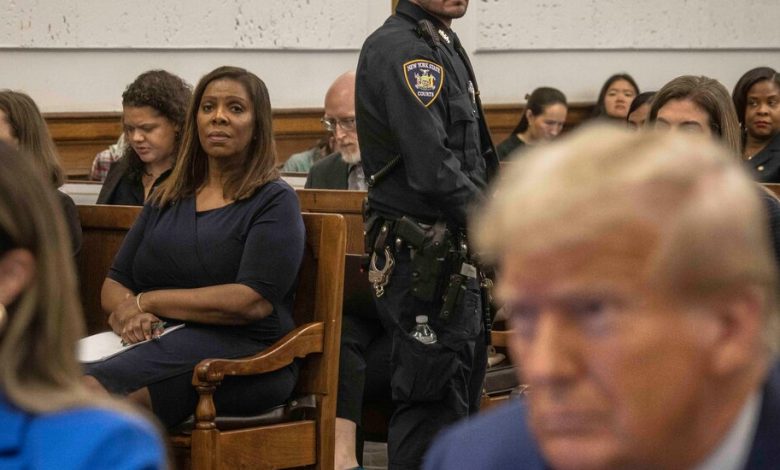Trump May Face Harsh Punishment Thanks to a Mighty New York Law

When a New York judge delivers a final ruling in Donald J. Trump’s civil fraud trial as soon as Friday, the former president could face hundreds of millions in penalties and new restrictions on his family business.
That might seem steep in a case with no victim calling for redress and no star witness pointing the finger at Mr. Trump. But a little-known 70-year-old law made the punishment possible.
The law, often referred to by its shorthand, 63(12), which stems from its place in New York’s rule book, is a regulatory bazooka for the state’s attorney general, Letitia James. Her office has used it to aim at a wide range of corporate giants: the oil company Exxon Mobil, the tobacco brand Juul and the pharma executive Martin Shkreli.
In the Trump case, Ms. James accused the former president of inflating his net worth to obtain favorable loans and other financial benefits. Mr. Trump, she argued, defrauded his lenders.
Yet the lenders testified that they were thrilled to have Mr. Trump as a client. And while a parade of witnesses echoed Ms. James’s claim that the former president’s annual financial statements were works of fiction, none offered evidence showing that Mr. Trump explicitly intended to fool the banks.
It might seem like a fatal flaw, but under 63(12), such evidence was not necessary to find fraud.
The law does not require the attorney general to show that Mr. Trump had intended to defraud anyone or that his actions resulted in financial loss.
We are having trouble retrieving the article content.
Please enable JavaScript in your browser settings.
Thank you for your patience while we verify access. If you are in Reader mode please exit and log into your Times account, or subscribe for all of The Times.
Thank you for your patience while we verify access.
Already a subscriber? Log in.
Want all of The Times? Subscribe.
